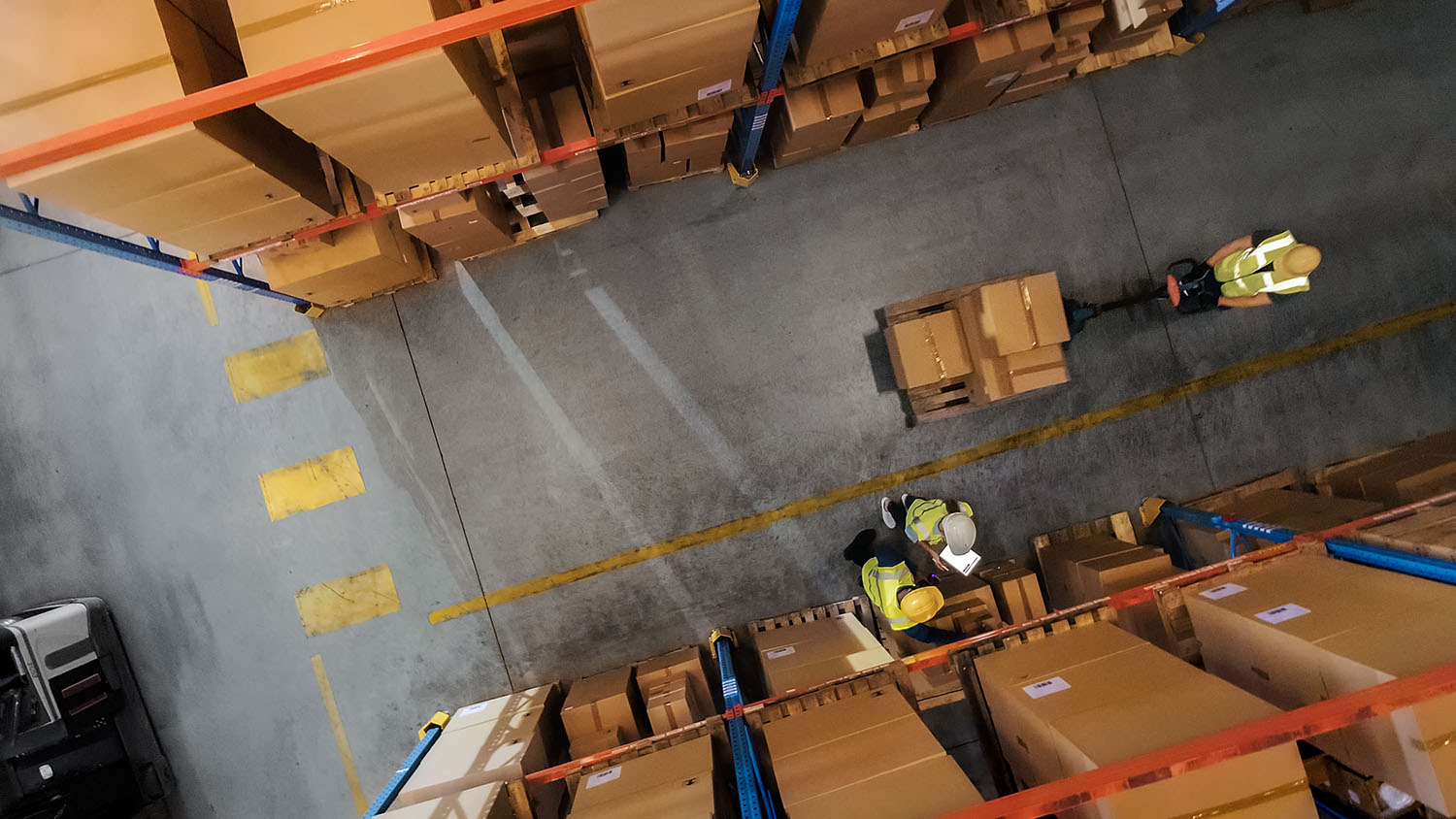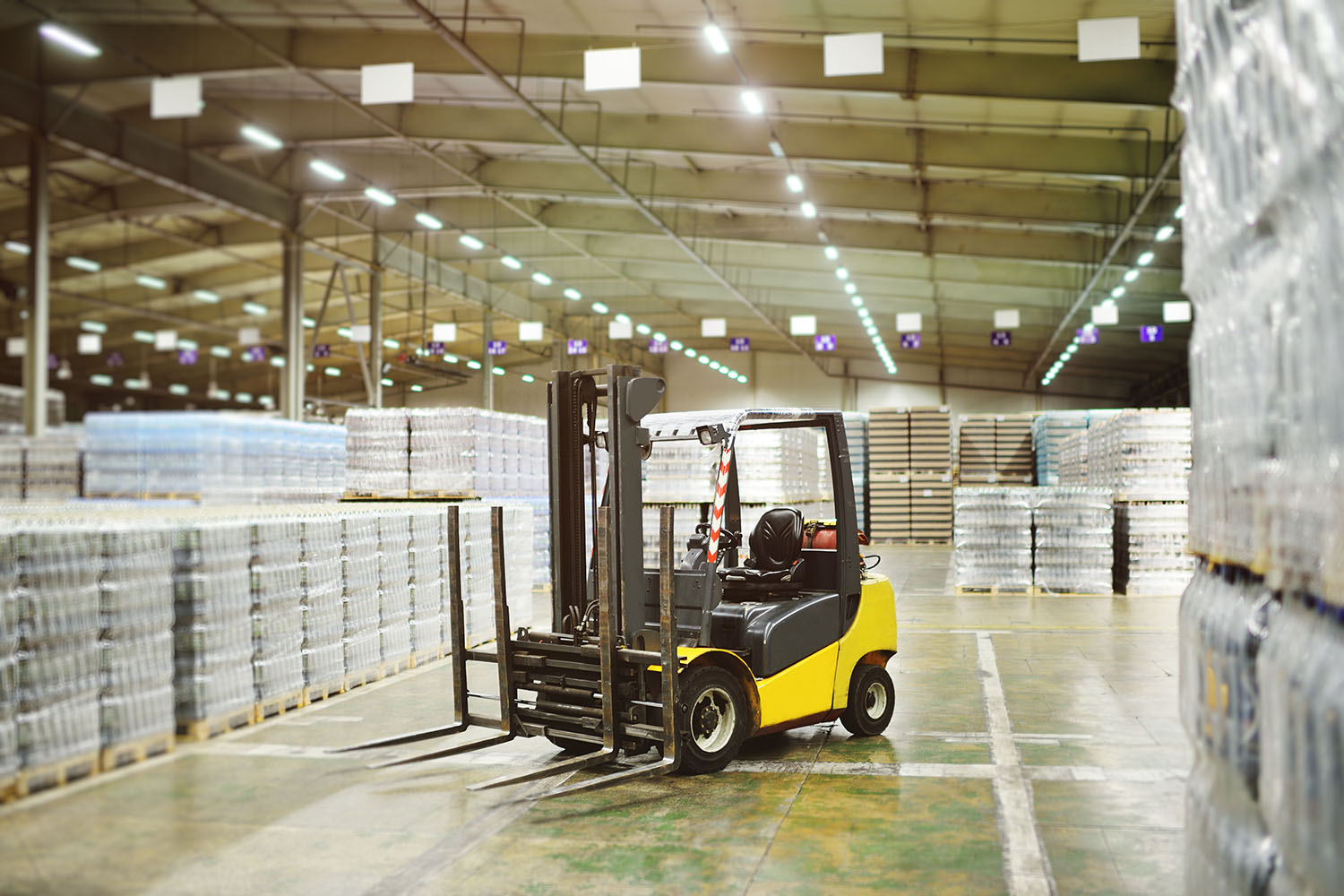Partnering with a 3PL company is a smart way to hand off complex logistics tasks to professionals. It’s more than just a supply chain decision; it’s a move that can directly impact your bottom line. And like any major business choice, it deserves careful consideration.
In 2025, North American 3PLs are playing a bigger role than ever. Across the United States and Canada, companies of all sizes are relying on outsourced logistics to stay competitive. The right partner can help you improve speed, cut costs, and deliver a better experience to your customers. With the wrong one, you risk delays, extra fees, and unnecessary complexity.
This guide gives a clear look at what 3PL companies do and then walks through 10 of the top providers in the US and Canada. When your business is ready to scale and needs a proven 3PL, this guide will help you make good choices.
What Is a 3PL Company?
A 3PL (third-party logistics) company provides outsourced logistics services, such as warehousing, stock management, order fulfilment, and delivery. Additionally, some provide value-added services like return handling and packing. By taking over some of your supply chain’s essential functions, a 3PL acts as the logistics extension of your company, allowing you to focus on sales growth, marketing, and customer support.
As e-commerce grows, 3PL companies can boost your own company’s efficiency, cut your costs, and help you more quickly meet market demands. That way, they play a key role in modern supply chains and the overall global marketplace. Using advanced technologies and expanding their operations, 3PL warehousing companies help businesses manage complexities.
Top 10 3PL Companies in 2025
| Company | Warehouse Locations | Key Specialties | Pricing Model | Best For | Technology Features |
| DHL Supply Chain | 1,600+ warehouses in 50+ countries | Contract logistics, automation | Custom enterprise pricing | Large-scale, complex operations | 2,000+ robots, warehouse automation |
| FedEx Supply Chain | 130+ distribution centers | Retail, healthcare compliance | Custom enterprise quotes | Compliance-critical industries | SenseAware tracking, real-time visibility |
| UPS Supply Chain | 950+ facilities globally | Healthcare, international logistics | Quote-based enterprise pricing | Global supply chains, healthcare | Supply Chain Symphony platform |
| Amazon MCF | 350+ fulfillment centers globally | Multi-channel fulfillment, Prime-level delivery | Per-unit fees starting at $3.99 | Amazon sellers expanding off-platform | 97% on-time delivery, extensive carrier network |
| C.H. Robinson | North America network | Freight brokerage, multimodal logistics | Carrier network pricing | Food & beverage, manufacturing | Navisphere technology platform |
| XPO Logistics | North America focus | LTL, last-mile delivery | Contract-based pricing | Large-scale distribution | XPO Connect platform, automation |
| Red Stag Fulfillment | 2 US locations | Heavy/oversized items, high-value products | Premium pricing, 200+ order minimum | Furniture, fitness equipment, electronics | 99.997% accuracy guarantee |
| ShipBob | 50+ global locations | E-commerce fulfillment, 2-day shipping | Custom quotes, $275 monthly minimum | Small to large DTC brands | Real-time analytics, inventory placement program |
| Ryder Supply Chain | 300+ warehouses in North America | Industrial, CPG, automotive | Fully customized pricing | Seasonal businesses, B2B operations | Proprietary WMS, real-time tracking |
| ShipMonk | US, Mexico, EU locations | E-commerce, subscription boxes | Volume-based pricing | Growing e-commerce brands | Multi-channel integration |
Let’s look at each of these 3PL companies in detail now:
1. DHL Supply Chain
DHL Supply Chain is built for scale. With 1,600+ warehouses across 50+ countries, including 351 facilities in the US, it supports global brands in sectors like healthcare, retail, and automotive.
The company regularly features as a leader in Gartner’s Magic Quadrant for third-party logistics. It leads in automation, deploying over 2,000 fulfillment robots to improve speed and accuracy while reducing physical strain. AI-driven systems help optimize picking and packing in real time.
DHL’s logistics solutions are industry-specific and often highly customized. From cold-chain healthcare storage to complex retail distribution, its infrastructure and expertise are hard to match.
Pricing is tailored based on operational needs, with a focus on deals that meet the needs of large enterprises handling high-volume or multi-channel operations. If you need a deeply integrated, tech-powered partner, DHL has the network and resources to deliver.
2. FedEx Supply Chain
This 3PL manages more than 130 warehouses and over 40 million square feet of space worldwide to fulfill e-commerce and omnichannel operations with speed, visibility, and compliance. The company is also known for handling logistics in the healthcare space where strict SLAs and high-integrity warehousing are non-negotiable.
FedEx’s most touted feature is its SenseAware platform, which uses real-time sensors to track location, temperature, and even light exposure during transit, ideal for sensitive or high-value shipments.
FedEx also offers custom pricing based on pickup frequency and fulfillment needs, from per-order rates to bulk shipments. For businesses that need precision, compliance, and deep integration with transportation services, FedEx Supply Chain delivers on all fronts.
3. UPS Supply Chain Solutions
Offering a global logistics network with more than 950 facilities, UPS Supply Chain Solutions is a dependable choice for businesses that want both international reach and reliable domestic fulfillment. Its strength lies in supply chain visibility, transportation, customs brokerage, and sector-specific solutions such as healthcare.
With GDP-certified facilities and stringent compliance standards, UPS manages more than 1.5 million square feet of temperature-controlled space for pharmaceutical logistics. That makes it a go-to for brands needing end-to-end control over sensitive or regulated shipments.
The company’s Symphony platform integrates shipping, warehousing, and inventory tracking into a single dashboard, giving businesses real-time data to improve decision-making.
4. Amazon Multi-Channel Fulfillment (MCF)
Amazon Multi-Channel Fulfillment (MCF) allows businesses to ship orders from their own websites or other marketplaces—like Shopify or Walmart—with the same fast delivery speeds Amazon offers its Prime customers.
The service delivers 97% of packages on time and maintains a 99.98% accuracy rate. Thanks to Amazon’s strategic inventory placement, 92% of US Prime members are within one-day ground delivery range.
Fulfillment starts at around $3.99 for small items, with discounts for multi-unit orders. Storage fees are volume-based, and there are no long-term contracts.
While delivery performance is strong, flexibility is limited. MCF prioritizes Amazon orders during peak periods and offers fewer customization options compared to other 3PLs. Still, it’s ideal for businesses that want to tap into Amazon’s logistics muscle while selling across channels.
5. C.H. Robinson
C.H. Robinson is one of the largest logistics companies globally, with more than $10 billion in freight under management and access to 100,000+ carriers. It’s best known for freight brokerage and transportation management, but also provides warehousing and full supply chain services.
The proprietary Navisphere platform gives shippers real-time tracking, predictive analytics, and data-backed performance insights. This makes it especially valuable for companies managing complex or international supply chains.
C.H. Robinson also offers supply chain consulting, helping businesses to identify cost savings, improve routing, and enhance operational efficiency. This is ideal for midsize to enterprise brands dealing with frequent freight, global sourcing, or multimodal shipping. C.H. Robinson operates on a quote-based pricing model, with annual contracts starting from around $1,000, and rates vary depending on services, shipment volume, and complexity.
6. XPO Logistics
XPO Logistics is known for its North Americans strengths in freight, last-mile delivery, and contract logistics. With fully customized pricing and operations, it’s a reliable partner for e-commerce, industrial, and retail clients.
What also sets XPO apart is its investment in automation. The XPO Connect platform uses real-time data and algorithms to optimize routing, reduce delivery times, and improve efficiency, especially for less-than-truckload (LTL) shipments.
XPO also leads in warehouse automation and predictive analytics, helping clients streamline everything from storage to outbound logistics. If your fulfillment strategy involves freight, LTL shipping, or large-scale distribution, XPO combines technology and reach to help you move smarter.
7. Red Stag Fulfillment
This brand is a niche 3PL that specializes in heavy, high-value, or oversized goods. With two US facilities in Tennessee and Utah, its warehouses are designed to handle large, heavy items like fitness gear, furniture, or electronics, so must feature wide aisles, high ceilings, and dedicated equipment. Red Stag’s services include special packaging, ESD-safe handling areas, and 24/7 security.
The company guarantees 99.997% accuracy, with a $50 credit if they make a mistake. It also offers a zero-shrinkage policy, reimbursing any lost or damaged inventory.
Pricing is premium (around 40% higher than standard), but brands benefit from accuracy, care, and peace of mind. For products that can’t afford fulfillment errors, Red Stag is worth the investment.
8. ShipBob
ShipBob is a tech-forward 3PL provider with over 50 fulfillment centers across North America, Europe, and Australia. Known for fast, cost-effective e-commerce fulfillment, it offers end-to-end logistics, from storage and pick-and-pack to returns and analytics.
Its platform integrates seamlessly with Shopify, BigCommerce, WooCommerce, and others, giving businesses real-time visibility over inventory and orders. Built-in analytics help optimise shipping zones and forecast demand.
Pricing is transparent, with bundled rates that include picking, packing, materials, and shipping. Clients benefit from bulk carrier discounts, with some saving up to 40% on fulfillment costs. Storage fees are competitive, and the $275 monthly minimum makes it accessible for scaling brands.
With strong customer support, easy onboarding, and consistent performance, ShipBob has a rating of 3.7 out of 5 on G2, making it a top pick for growing DTC businesses looking to streamline fulfillment without giving up control.
9. Ryder Supply Chain Solutions
Ryder operates more than 300 fulfillment centers across North America and is known for its engineering-first approach to logistics. Each solution is custom-built, making it ideal for businesses with seasonal demand or complex delivery needs.
The company works across retail, consumer goods, and industrial sectors. Notably, Ryder has enabled 99.9% on-time delivery, even during 268% surges over peak periods. It also supports last-mile delivery to 95% of the US and Canada within two days. Value-added services include kitting, returns management, and custom packaging.
Rather than using flat-fee models, Ryder develops tailored pricing based on your order profile and fulfillment needs. If you’re after a flexible, hands-on partner with proven performance at scale, Ryder delivers.
10. ShipMonk
ShipMonk is tailored to e-commerce and subscription box brands, offering fulfillment services like inventory storage, pick-and-pack, returns, and kitting. Its cloud-based platform integrates with major e-commerce tools to provide real-time visibility across sales channels.
With warehouses in the US, Mexico, and the EU, ShipMonk helps brands optimize delivery times and reduce shipping costs by storing inventory closer to customers. Customers praise the smooth onboarding and strong client support. On G2, ShipMonk holds a 4.5 out of 5 rating, with users calling out the intuitive dashboard and responsive team.
ShipMonk’s pricing is volume-based, starting around $3.00 per order for low volumes, with additional item, storage, and special project fees, and a minimum monthly pick-and-pack fee of $250; custom quotes are available for larger businesses.
How to Compare 3PL Providers
Choosing a partner from the 3PL companies list isn’t a one-size-fits-all decision. The size, product kind, growth trajectory, and client expectations of your business all influence which supplier is best for you. Consider the following key factors.
Fulfillment Capabilities
Start by evaluating the provider’s core fulfillment capabilities. Can they handle your order volume, SKUs, and packaging needs reliably? If you sell products with unusual dimensions or storage requirements, this becomes even more important.
Technology Integration
Technology integration is another critical factor. Opt for 3PLs that provide real-time order tracking, inventory, and warehouse performance visibility. Integrating with your e-commerce platform, such as Shopify, WooCommerce, or BigCommerce, saves you time and keeps your data accurate across systems.
Location of Fulfillment Centers
Location matters, too. A distributed fulfilment network reduces expenses and shipping times. This is especially critical if you ship abroad. Providers with warehouses in key locations can help you meet your service goals. This way, you won’t have to overspend.
Pricing Models
While some 3PLs offer simple, transparent pricing per order, others add fees for receiving, storage, and special services. Ask for a detailed quote based on your order profile to avoid surprises.
Customer Support
A responsive account team can make a big difference, especially during peak periods or when troubleshooting an issue.
Which 3PL Is Right for You?
The right 3PL depends on your business model, sales channels, and where your customers are. If selling mainly in one country, look for a provider with strong local infrastructure. You’ll need international warehouses and cross-border support when going global. If you’re B2C, prioritise providers with fast DTC fulfillment and strong returns management. Look for bulk handling, custom packaging, and systems that integrate easily with your ERP for B2B or omnichannel.
As you compare your options, pay close attention to the technology powering their operations. This is where Da Vinci stands out. While not a 3PL provider itself, Da Vinci is a leading warehouse management system trusted by top 3PL companies and brands for its advanced tech stack, rapid implementation, and flexible, user-friendly design.
With nearly 50 advanced features, integration with over 50 e-commerce and ERP platforms, and real-time analytics, this WMS empowers 3PLs to deliver faster, more accurate fulfilment and adapt quickly as your needs grow. Its strong customer support and scalable architecture ensure your logistics partner can keep pace with your growth today and tomorrow.
Choosing a 3PL powered by Da Vinci means better visibility, faster fulfillment, and smoother operations, from checkout to doorstep. It makes it easier to scale, adapt, and impress your clients, whether they ship 100 orders a day or 10,000.
3PL Companies FAQs
What exactly does a 3PL do?
A 3PL handles logistics, from warehousing and inventory tracking to picking, packing, shipping, and returns, and sometimes even kitting or special packaging. They’re your outsourced warehouse and fulfillment partner.
When should I start working with a 3PL?
If you’re handling more than ~300 orders a month or hitting capacity limits, it’s time. A 3PL helps you scale without warehouse headaches or tech investments.
How much does a 3PL cost?
Pricing varies: usually a bundle of per‑order pick‑pack, storage per pallet/bin/cubic foot, and shipping. Ask for a quote that matches your volume, as some providers include packaging and carrier discounts.
Can a 3PL manage returns?
Yes, but check first. Returns scope wide from inspection and restocking to refunds and branded portals. Verify reverse logistics abilities if returns are important to your company.
What tech should I look for?
A good 3PL offers real-time dashboards, inventory visibility, order tracking, and integrations with Shopify, Amazon, ERP, etc. Bonus if they use predictive analytics, mobile scanning, or robotics.
Ready to Partner with a 3PL That Grows With You?
The right 3PL can transform your supply chain, boost your efficiency, and help your business thrive. As you evaluate providers, look for those who leverage robust technology like Da Vinci WMS to deliver exceptional service and transparency.
Want to see how the right tech can elevate your fulfillment experience? Schedule a call or request a free demo to discover how this platform can support your growth and streamline your logistics.



